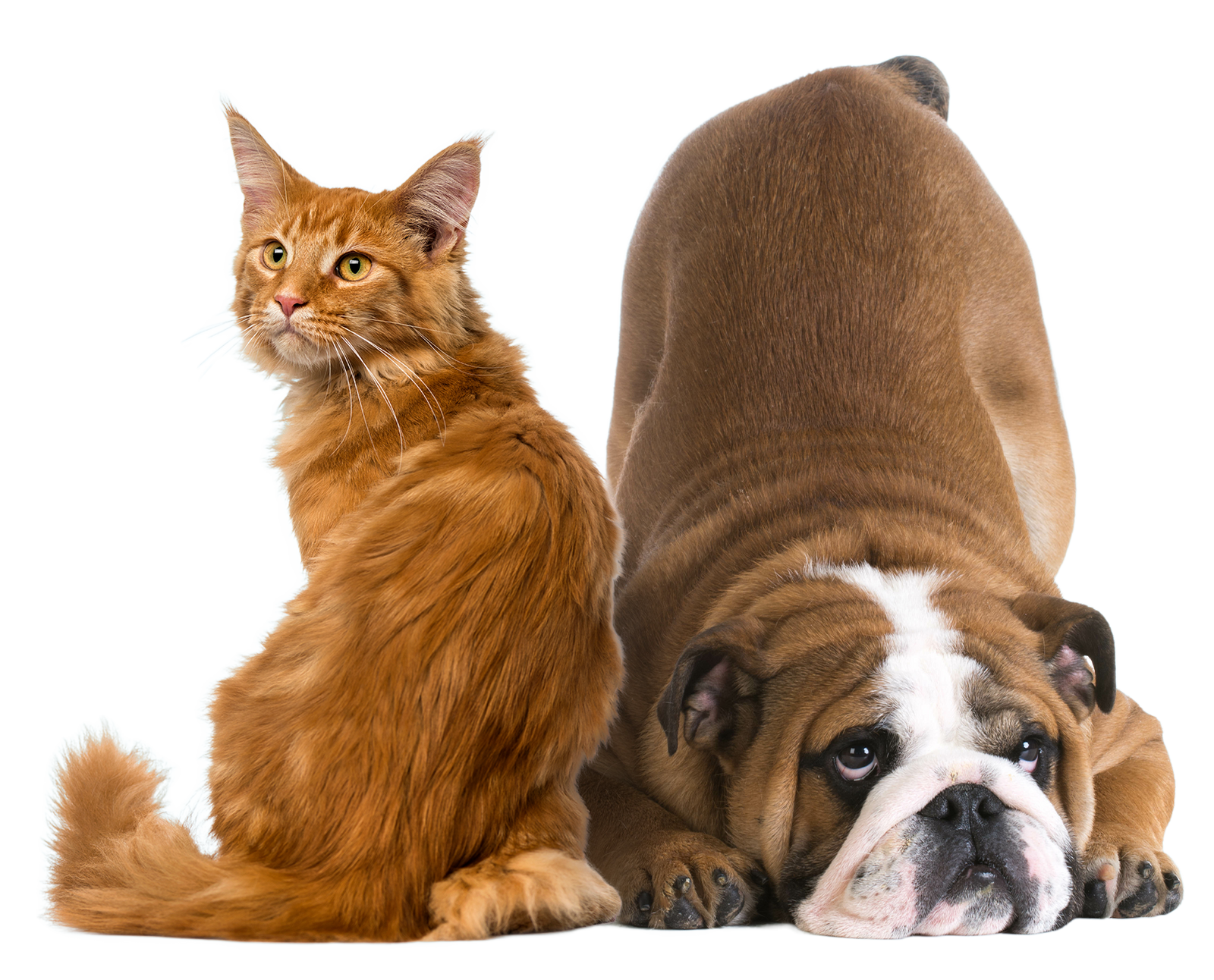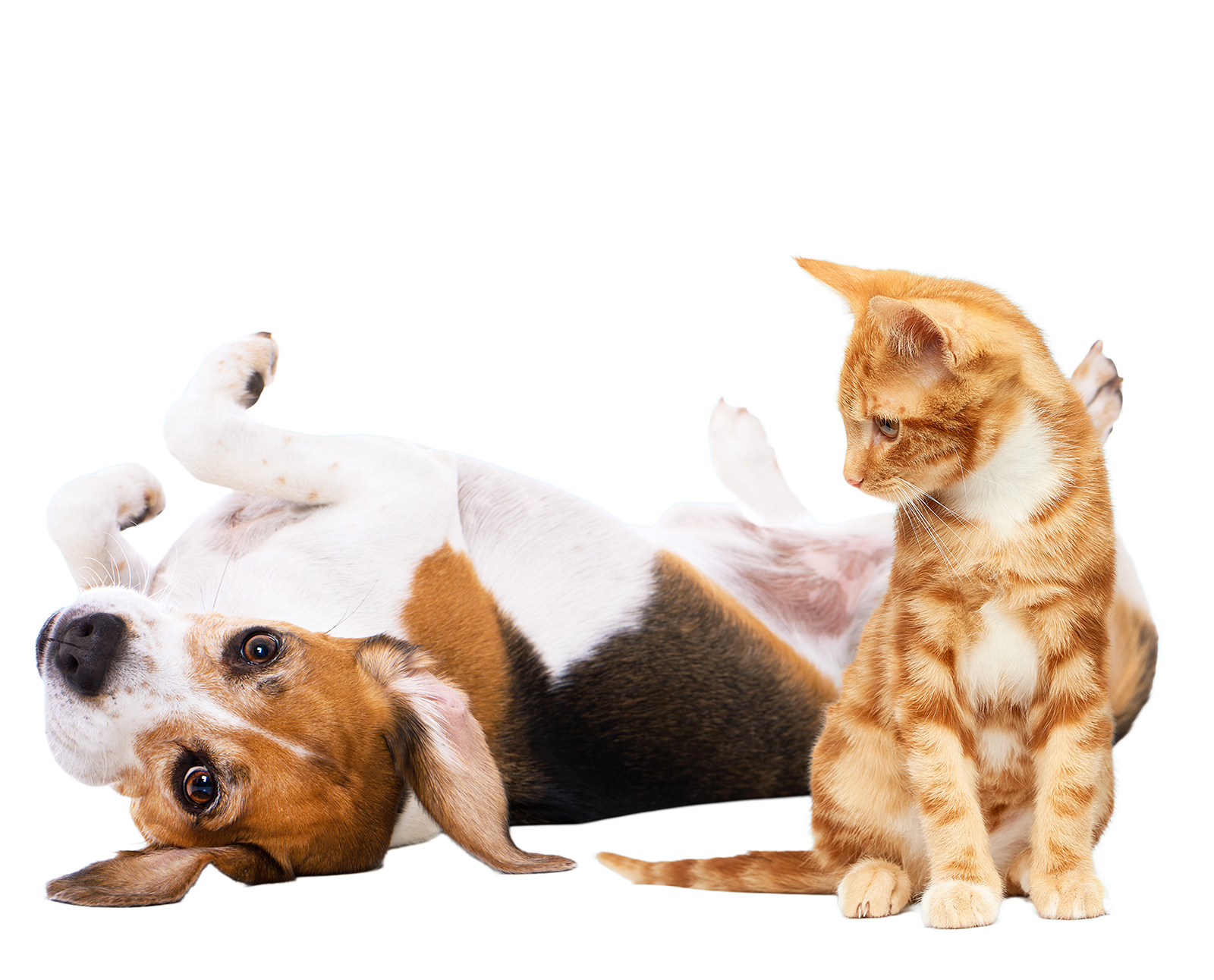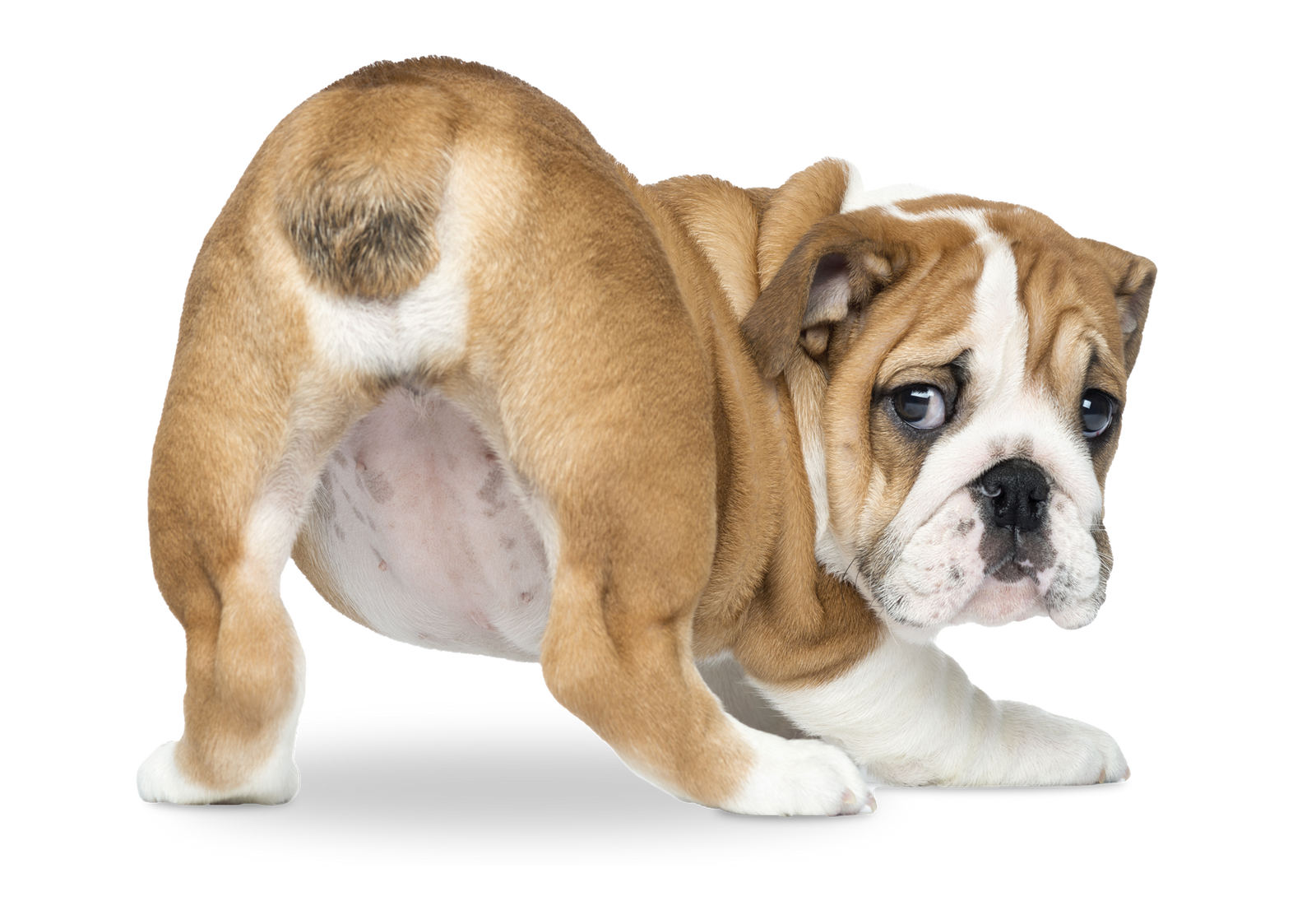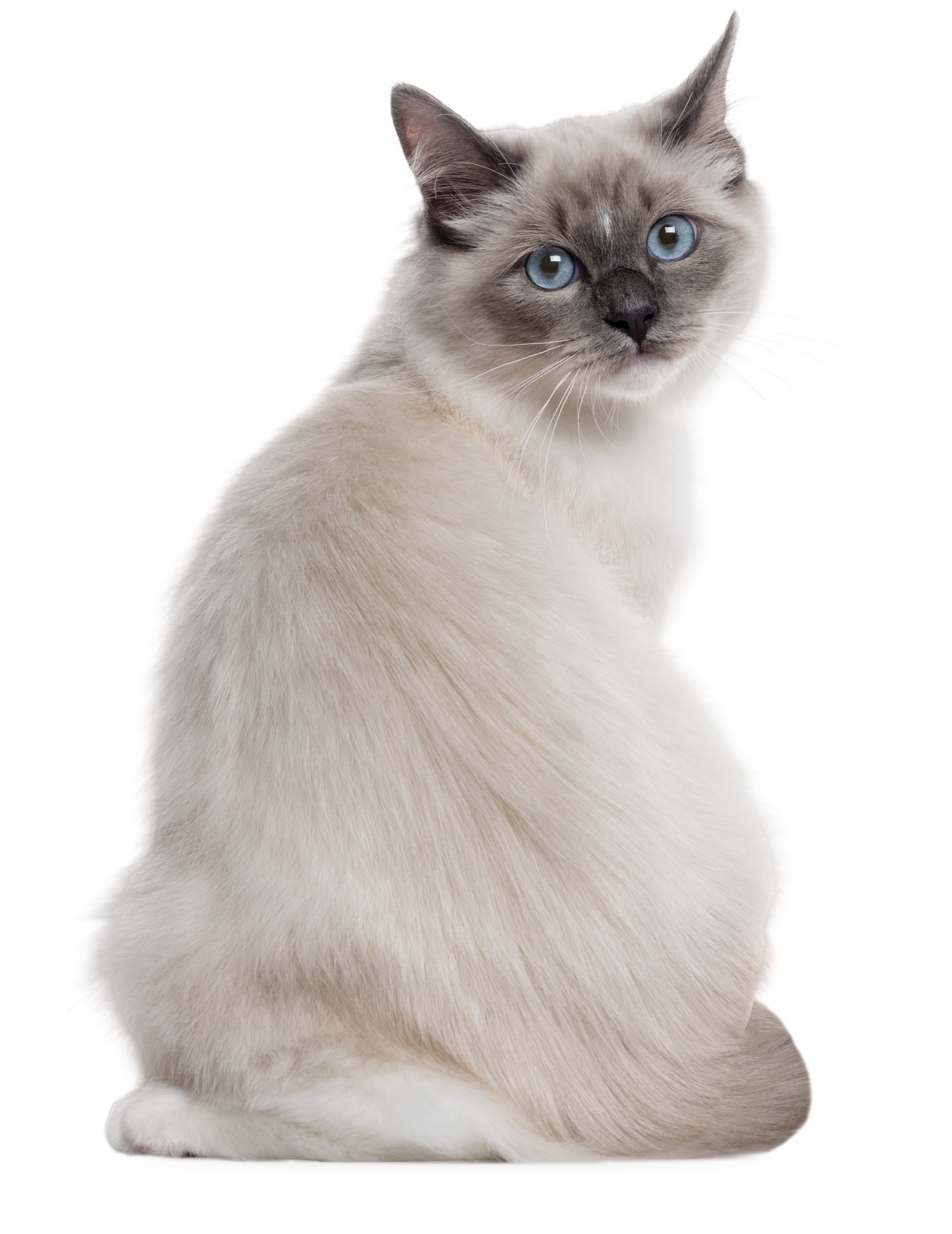Why Does My Cat Have Diarrhea?

When a cat’s stomach is upset, diarrhea can send you running for the hills––and the mop. Cat diarrhea is unpleasant for you and even more uncomfortable for your cat. A bad case of ‘the runs’ will send anyone into panic mode!
So why does my cat have diarrhea, you ask? We’ll start with what could be causing their tummy troubles, how to ease your cat’s discomfort, and what happens when it goes from being a nuisance to a severe health issue.
Cat diarrhea causes: why does my cat have diarrhea?
Regarding cat diarrhea, causes can range from infection to dietary transgressions. How can you nail down the cause of your cat's diarrhea? Your first task is determining if your cat’s diarrhea is acute (sudden) or chronic (recurring). Consider one of the following causes:
Infectious disease
Infectious diseases are the most common acute cause of diarrhea in cats. Infections can be:
- Parasitic (environmental or food-borne organisms that need a living host to survive)
- Bacterial (organisms that can survive outside the body, e.g., on surfaces or in food)
- Viral (non-living molecules most commonly contracted by cats through fecal matter)
- Fungal (parasitic organisms widely found in soil that can transfer through inhalation, ingestion, or the skin)
Resistant infections can cause chronic diarrhea in cats. Some staph infections are highly resistant to antibiotics. Staph can be passed from cat to cat and person to cat. Cats also pick them up through contaminated surfaces.
Inflammatory disease
Allergies commonly cause acute diarrhea in cats. They could be from the food your cat eats or the environment where they spend their time. Mold and mildew are examples of environmental allergies that can cause cat diarrhea.
Poisoning
Toxins are specific types of poisonous materials, many of which are dangerous for your cat and can be one of the acute causes of cat diarrhea. Diarrhea and vomiting are one of the body’s frontline reactions to poisoning. Report these symptoms to your veterinarian to rule out potential exposure to a toxin.
Changes in metabolism
Diarrhea can be one of the first signs of distress in a cat’s metabolism. Two thyroid glands in your cat’s neck control the metabolic system, which converts food into usable energy for your cat. Reduced thyroid function can affect motility (movement) in a cat’s gastrointestinal tract and lead to stool abnormalities like diarrhea.
Changes in the endocrine system
The liver and pancreas are two organs crucial for endocrine function––the release of hormones throughout the body. Distress in one or more of these organs can trigger changes in gut motility and, by extension, diarrhea.
Obstructions
A bowel obstruction can be an acute cause of cat diarrhea because they usually happen quickly–except in the case of hairballs–and can affect how fecal matter moves through the gastrointestinal tract, especially if the obstruction is closer to the tail. Abdominal pain and vomiting are also common signs of bowel obstruction in cats.
Inflammatory bowel disease
Cats suffering from inflammatory bowel disease (IBD) are more likely to struggle with chronic diarrhea. IBD is a syndrome caused by repeated irritation of the intestinal tract and increases the likelihood of gastrointestinal cancer in cats. Cats with recurring vomiting or diarrhea are at higher risk for IBD, so it’s vital to manage acute diarrhea symptoms with your veterinarian's help.
Cancers of the GI tract
Intestinal cancer in cats is rare and mainly affects senior cats over six years of age. While somewhat rare, this painful type of cancer can also cause chronic diarrhea, weight loss, vomiting, and loss of appetite. Don’t wait––talk to your veterinarian immediately if you have concerns about your cat being affected by advanced intestinal disease.

Cat diarrhea symptoms
A cat with diarrhea might be challenging to spot at first––but the litter box never lies! Take a look at these common signs of diarrhea in your feline friend.
Loose or watery stools
Normal, healthy cat stools should be log-shaped and firm enough to hold their shape (think modeling clay consistency). Loose, watery stools will appear spongey or runny and might fall apart when you scoop them out of the litter box. Excessively soft or liquidy stools mean your cat has diarrhea.
Urgency during defecation
Is your cat hurrying off to the litter box? Urgency is a sign that your cat might have diarrhea. The gastrointestinal system will try to eliminate harmful pathogens as quickly as possible, which can sometimes lead to an uncontrollable urge to ‘go’ ASAP.
Increased frequency of defecation
Are you cleaning the litter box more than usual? Increased or uncontrollable frequency is another sign that your cat’s gastrointestinal system is trying to eliminate something harmful in the gut. Your cat may poop once or twice daily when their GI tract is functioning normally; a cat with diarrhea will poop three or more times per day.
Accidents outside the litter box
Cat diarrhea isn’t normal for your cat, so don’t be surprised if normal litter box behaviors go out the window. Due to the frequency and urgency associated with cat diarrhea, your feline friend might have an accident if faced with an uncontrollable bowel movement.
Loss of appetite
Tummy troubles linked to diarrhea might cause your cat to forego their usual eating routines. If your otherwise healthy cat is skipping meals or eating less of their typical food, look for other signs to see if diarrhea could be the cause.
Hiding
Cats behave a little differently when under physical or emotional stress, and hiding is often the most recognizable sign that something’s up. They might hide under furniture or spend longer in their safe spaces while feeling under the weather.
Lethargy
Low energy (lethargy) can occur if a cat with diarrhea is affected by poor nutrient absorption in the gut. The intestines absorb vitamins, minerals, and electrolytes under normal circumstances. When a cat has diarrhea, most nutrients pass through the body without being absorbed, meaning the cat can’t metabolize energy from food. Signs of a lethargic cat include low energy, indifference to social interactions, disinterest in play, and decreased alertness.
The best cat diarrhea treatments to try at home
Helping your cat recover from a bout of acute diarrhea needn’t necessarily require prescription medications––dietary changes and supplements can help with frontline relief!
Fiber supplements
Are you wondering what to feed a cat with diarrhea? A powder fiber supplement for cats can help bulk loose stools when your cat has diarrhea. Fiber supplements can also encourage firmer stools for cats with chronic diarrhea and support anal gland health to reduce the risk of impactions.
Probiotics
Infectious diarrhea can alter the amount of ‘good’ bacteria in your cat’s gut. A lack of diverse microbiota in the GI tract can lead to additional symptoms like gas, bloating, and abdominal pain. Giving your cat a spore-forming probiotic can help replenish a healthy balance of gut flora as they recover from illness.
Bone broth
Adding bone broth to your cat’s wet or dry food is a great way to replenish lost hydration and nutrients during an illness. Diarrhea prevents your cat’s body from absorbing nutrients from digested food. Bone broth can help supplement dietary minerals, calories, and proteins.
Plain cat food
Avoid unnecessary treats and table scraps. Only offer your cat nutritionally valuable wet or dry food. If a new food is causing your cat’s acute diarrhea, switch back to their previous food. Your veterinarian can help you choose a food that agrees with your cat’s digestive system.
Increase water intake
Consider upping the moisture content in every aspect of your cat’s diet while they have diarrhea. It might seem counterintuitive to give more water to an animal with watery stools. Still, dehydration is a very real (and severe) risk for cats with diarrhea.
Need to give your cat a hydration boost? Add warm water to your cat’s kibble or start offering wet food. Adding low-sodium chicken or bone broth to cat food can also help with hydration.
Complications of cat diarrhea
What if your cat’s acute diarrhea becomes a regular occurrence? Health complications can arise during or directly after your cat’s diarrhea symptoms begin or can develop after multiple cycles of diarrhea over an extended period.
Anal gland issues
Cats have anal glands–just like dogs–and while they aren’t as prone to anal gland problems, diarrhea can increase their risk.
Anal leakage
Why is my cat leaking brown fluid between bowel movements? Anal leakage can signify that your cat is struggling with diarrhea and trying to ‘hold it in’ until they get to a litter box.
Dehydration
Cats with diarrhea lasting longer than 24 hours are at higher risk for dehydration, which can harm kidney function and overall health.
Anemia
Cats experience anemia when their body isn’t producing enough red blood cells to carry oxygen to their muscle tissues. Signs of cat anemia can include lethargy, pale gums, and tiring quickly.
IBD
Inflammatory bowel disease is an umbrella term for chronic irritation within the gut. If your cat has had recurring bouts of diarrhea–especially from infection–talk to your veterinarian about potential ways to keep your cat from developing IBD.
Cats can be good about hiding their pain from you, but irregular litter box behaviors could be your first sign that something’s wrong. Always report diarrhea to your veterinarian, especially if it recurs or seems to be triggered by a specific cause. And explore supplements that could help your cat outrun the runs!





